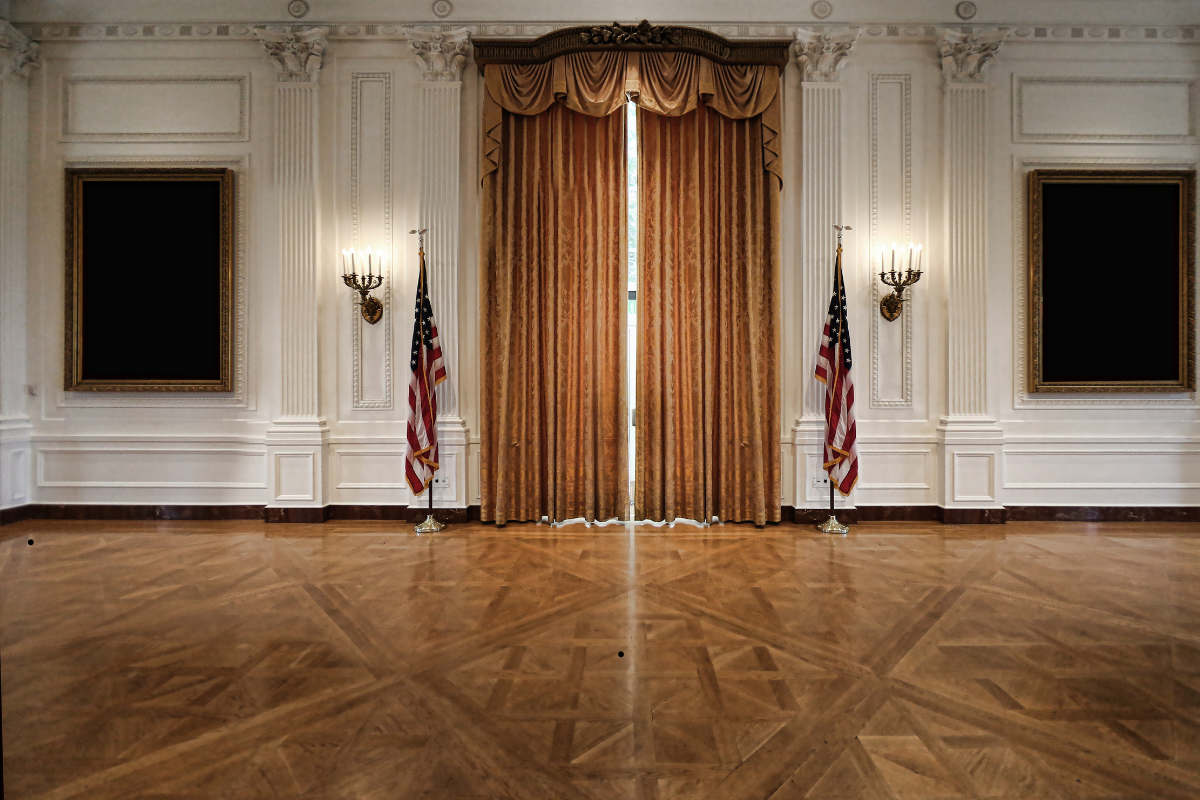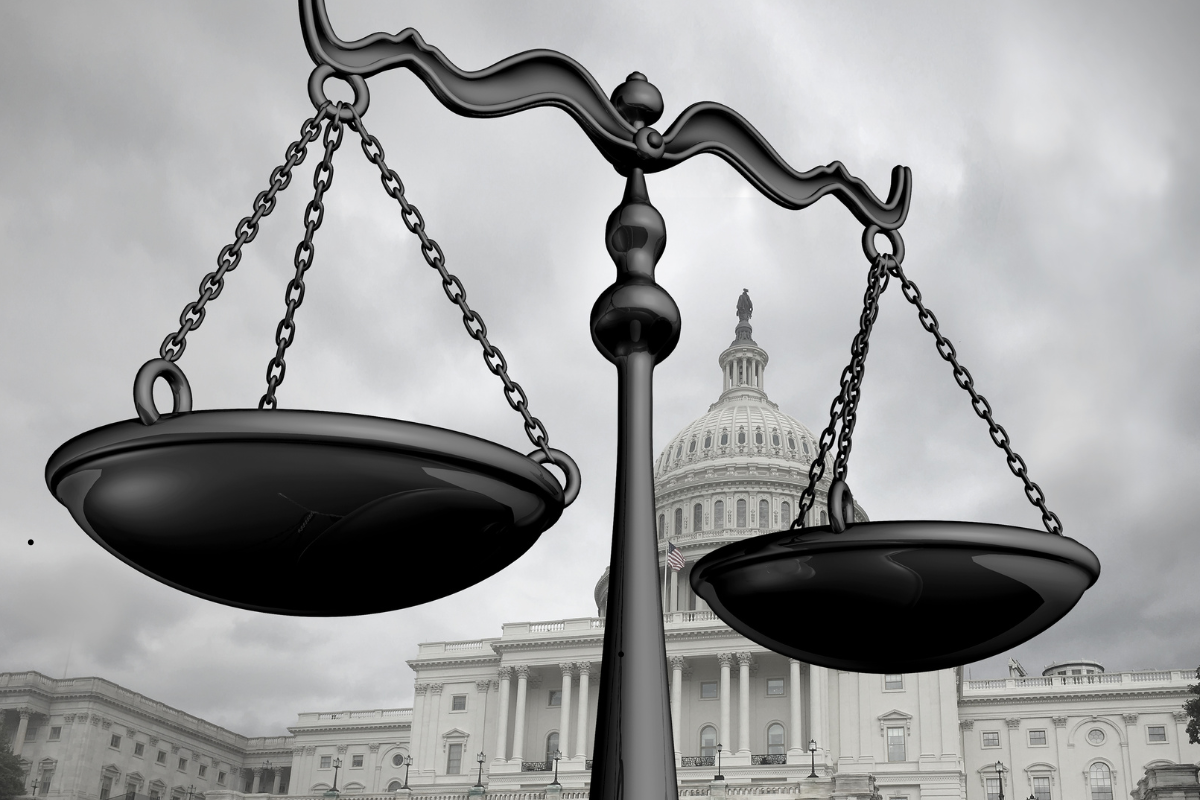Federalist 59
Federalist 59-61, all written by Hamilton, deal with Article I section 4 of The Constitution:
The Times, Places and Manner of holding Elections for Senators and Representatives, shall be prescribed in each State by the Legislature thereof; but the Congress may at any time by Law make or alter such Regulations, except as to the Places of chusing Senators.
This also may seem to contemporary audiences a rather unremarkable passage, but the relationship between the clauses highlights the central tensions of our constitutional design: how to balance the interests of the states against that of the general government, and how to insure that members of the legislature stay connected to the people they represent. States get to determine how they’re going to do elections, but Congress can override them. This vetoing authority would certainly tilt the balance of power away from the states and toward the national government, and any recalibrating of that delicate balance was sure to alarm Anti-federalist writers.
While voting may not be the most important act of citizenship it is nonetheless essential to maintaining a connection between people and their government and, more importantly, giving the people some control over the government. We may be sufficiently used to the processes in place to forget that before we can have elections we need to figure out exactly how we will run elections and who will make that decision. Very few people would want someone who has no direct stake in the outcome to determine for those who do exactly how things will be done.
States, Or Congress?
Note that Article I section four really has three parts to it: determining the time, place and manner for choosing representatives will largely be left in the hands of the state legislatures and while Congress may alters such laws they cannot do so as regards the places where Senators are chosen (keeping in mind that until ratification of the 17th Amendment in 1913 Senators were not popularly elected). Also keep in mind that the Constitution did not create congressional districts, so representatives could have been, and often were, chosen on an at-large basis — a mode of selection whereby controlling the time, place, and manner of election could easily be manipulated to produce preferred outcomes.
Anti-federalists were thus concerned that members of Congress could adjust time, place and manner regulations in such a way as to favor not only certain states over others, but to favor particular classes of people over others. What if Congress decided that the representatives for Massachusetts had to be selected in Boston at midnight? Or for New York in the city only? Not only the interests of states but the interests of different classes of citizens were at stake. As usual, the perspicacious Brutus got to the heart of the matter, arguing that the policy would favor the rich:
“The proposed Congress may make the whole state one district, and direct, that the capital (the city of New-York, for instance) shall be the place for holding the election; the consequence would be, that none but men of the most elevated rank in society would attend, and they would as certainly choose men of their own class; as it is true what the Apostle Paul saith, that ‘no man ever yet hated his own flesh, but nourisheth and cherisheth it.’”
Other Anti-federalist writers such as The Federal Farmer and Luther Martin worried that such a policy would favor the interests of city-dwellers over those living in more rural areas. For this reason almost all the Anti-federalist authors insisted that states be divided into congressional districts that would insure rural areas, poorer persons, and those with less public cache would enjoy proportional representation in Congress, and such division could only be accomplished at the state level where, in the words of Brutus, “the people are not only nominally but substantially represented.”
Abuse of Selection Power
Nor would Brutus find any reassurance in federalist claims that Congress’s power was unlikely to be abused. Good rulers could rule well under any system of government, but bad rulers would always need strict restrictions placed on them, and one such restriction was not placing into their hands the means of their own selection. “Men are apt to be deceived,” he continued, “both with respect to their own dispositions and those of others.” All persons are inclined to believe they will use discretionary power appropriately, but Brutus knew otherwise, for “this truth is proved by almost every page of the history of nations, to wit, that power, lodged in the hands of rulers to be used at discretion, is almost always exercised to the oppression of the people, and the aggrandizement of themselves; yet most men think if it was lodged in their hands they would not employ it in this manner” — a lesson everyone, regardless of party, should remember.
Hamilton responded by acknowledging the possibility of corruption, but worried that it would manifest itself even more at the state level. While Anti-federalists worried about state sovereignty and popular rule, federalists concerned themselves with unity and an energetic national government. Hamilton addressed Anti-federalist nervousness about corruption at the federal level by suggesting that it would be worse at the state level, and that corruption could in turn derail the whole constitutional project.
Hamilton did not shy away from either the importance of the clause nor the controversy surrounding it. He acknowledged that all those who opposed the Constitution opposed especially this part of it, that some who “objected with less latitude and greater moderation” also censured the clause, and that the clause even created opponents out of people who would have otherwise endorsed the Constitution. When the Anti-federalists complained about the diminution of sovereignty and popular will, Hamilton responded by asserting that unity and stability were the most important political goals.
Is it “Evil” to Select Your Own Representative?
The word “evil” appears infrequently in The Federalist, but Hamilton uses it multiple times in this essay, believing that giving the states exclusive authority over the election of their own representatives would elevate the parts over the whole. By having exclusive authority over the election of members of Congress, the states could destroy the federal government simply by not sending anyone to Washington. Especially if states combined their efforts they could completely subvert the operations of the national government.
The result, Hamilton believed, meant that every election would become a national crisis. “If the State legislatures,” he observed, “were to be invested with an exclusive power of regulating these elections, every period of making them would be a delicate crisis in the national situation, which might issue in a dissolution of the Union, if the leaders of a few of the most important States should have entered into a previous conspiracy to prevent an election.” Operating on the axiom that every government ought to have the means at its disposal to insure its own preservation, Hamilton believed that the federal government had to reserve the right to determine the selection of its own members. Without it, the “union” would be at the mercy of its composing members.
Parts and Wholes
Which would make sense to many of us. Few of us would join a club we weren’t allowed to leave or, once joined, required the abeyance of basic rights and interests. College faculty will rarely indulge divisional or institutional interests above departmental, and departments aren’t that which created the university. Maybe a better analogy is major college sports programs and the NCAA, a voluntary association created as a rule-making and -regulating body whose authority universities routinely ignore. Most universities realize it’s in their interest to have some regulatory authority over their multi-billion dollar industry, but they would gladly destroy the NCAA if they believe that power is abused or otherwise against their interests. (Indeed, the NCAA is now confronting its own powerlessness and irrelevancy, for universities are undefeated in court cases against the NCAA.) The situation becomes even more complex when one considers the role of conferences, whose multi-billion dollar interests often clash with NCAA regulators. Fans, meanwhile, will feel a loyalty to the university teams of their choice, even if they didn’t attend the school, which loyalty ought not to be considered lesser than those who did, and loyalty to a conference, but I’ve yet to meet a person who feels loyal to the NCAA.
This balancing of power and interest requires a deft touch. This is why the clause contains yet another constitutional compromise: Congress will have power to regulate, but not, since they represented the state, with regard to choosing the places where senators were to be elected. Hamilton, as I mentioned, believed that giving the parts any power over the whole amounted to an “evil,” but it was a necessary evil, without which ratification could not happen. Granted, allowing the states to retain their power over selection “may expose the Union to the possibility of injury from the State legislatures,” and thus “is an evil,” it was nonetheless “an evil which could not have been avoided without excluding the States, in their political capacities, wholly from a place in the organization of the national government.” Such exclusion, Hamilton realized, would have doomed the Constitution from the start, but the argument indicates the bent of Hamilton’s mind as regards the states, a bent Madison observed in his notes from the convention, transcribing Hamilton’s fervent belief that union required the eradication of the states.
A Genuine Compromise?
Carving out an exception for the selection of senators may have been a useful compromise, but thinkers such as Luther Martin recognized the spirit animating the concession.
“But even this provision apparently for the security of the State governments, inadquate as it is, is entirely left at the mercy of the general government, for by the fourth section of the first article, it is expressly provided, that the Congress shall have a power to make and alter all regulations concerning the time and manner of holding elections for senators; a provision, expressly looking forward to, and I have no doubt designed for the utter extinction and abolition of all State governments; nor will this, I believe, be doubted by any person, when I inform you that some of the warm advocates and patrons of the system in convention, strenuously opposed the choice of the senators by the State legislatures, insisting that the State governments ought not to be introduced in any manner so as to be component parts of, or instruments for carrying into execution, the general government…”*
Almost every clause of the Constitution reveals politics operating at a high level. We witness a powerful clashing of interests, of ideas, of habits and ways of life, none of which could be reconciled without serious compromise. We should not, however, allow the results of compromise to cloud our perception of what was at stake, or allow us to think that that results were somewhere between benign and salutary. Compromise may under many circumstances be preferable to other means of resolving disputes, but it always comes at a cost, and often that price is quite high.
___________________________________________________
*In this same passage from Genuine Information, Martin identified the sleight-of-hand that took place, one that corrupts our current understanding of constitutional debates: “…now, they who advocate the system, pretend to call themselves federalists, in convention the distinction was quite the reverse; those who opposed the system, were there considered and styled the federal party, those who advocated it, the antifederal.”
Director of the Ford Leadership Forum, Gerald R. Ford Presidential Foundation
Related Essays




